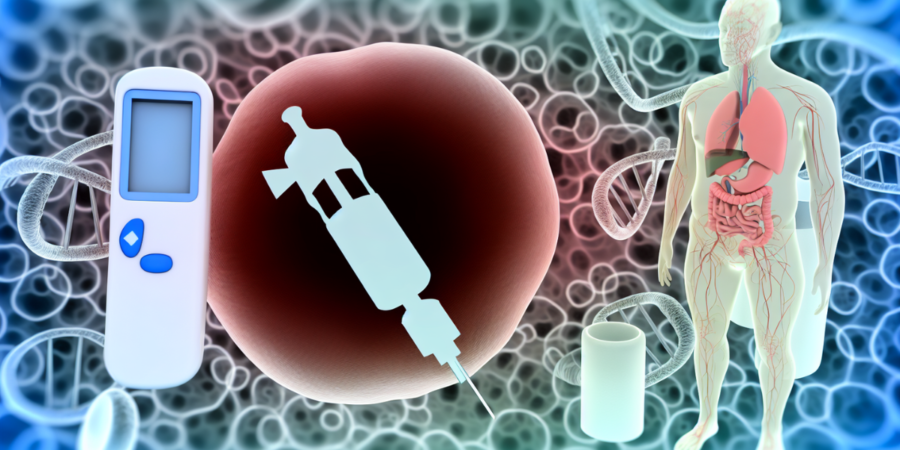Introduction:
Type 1 diabetes, also known as juvenile diabetes or insulin-dependent diabetes, is a chronic condition in which the pancreas produces little or no insulin. Insulin is a hormone needed to allow sugar (glucose) to enter cells to produce energy. It’s often diagnosed in children and young adults, but it can develop at any age.
Understanding Type 1 Diabetes:
Type 1 diabetes is an autoimmune condition. This means your immune system mistakenly attacks and destroys the insulin-producing beta cells in the pancreas. The exact cause of this immune reaction is still unknown, but it’s believed to involve a combination of genetic susceptibility and environmental factors.
Symptoms:
Common symptoms of Type 1 diabetes include increased thirst and urination, extreme hunger, unexplained weight loss, fatigue, irritability or other mood changes, and blurred vision. Symptoms can develop rapidly, often over a few weeks, and may be severe at the time of diagnosis.
Diagnosis and Treatment:
Diagnosis involves blood tests to measure blood sugar levels. If Type 1 diabetes is suspected, your doctor may also test for autoantibodies associated with the condition.
Treatment for Type 1 diabetes centers around maintaining normal blood sugar levels. This typically involves regular insulin injections or the use of an insulin pump. It’s also important to monitor blood sugar levels, follow a healthy diet, and engage in regular physical activity.
Living with Type 1 Diabetes:
Living with Type 1 diabetes can be challenging, but advancements in treatment and care have made it easier to manage the condition. With proper treatment and lifestyle adjustments, individuals with Type 1 diabetes can lead full, healthy lives.
Prevention and Research:
There is currently no known way to prevent Type 1 diabetes. However, ongoing research is aimed at understanding the factors that trigger the disease, with the goal of creating strategies for prevention. Clinical trials are also exploring ways to prevent the disease in those who have a high risk of developing it.
Conclusion:
Type 1 diabetes is a serious condition that requires lifelong management. However, with the right care and support, individuals with Type 1 diabetes can manage their blood sugar levels and reduce the risk of complications. It’s important for anyone with this condition to work closely with their healthcare team to create an effective management plan.


Leave a Reply